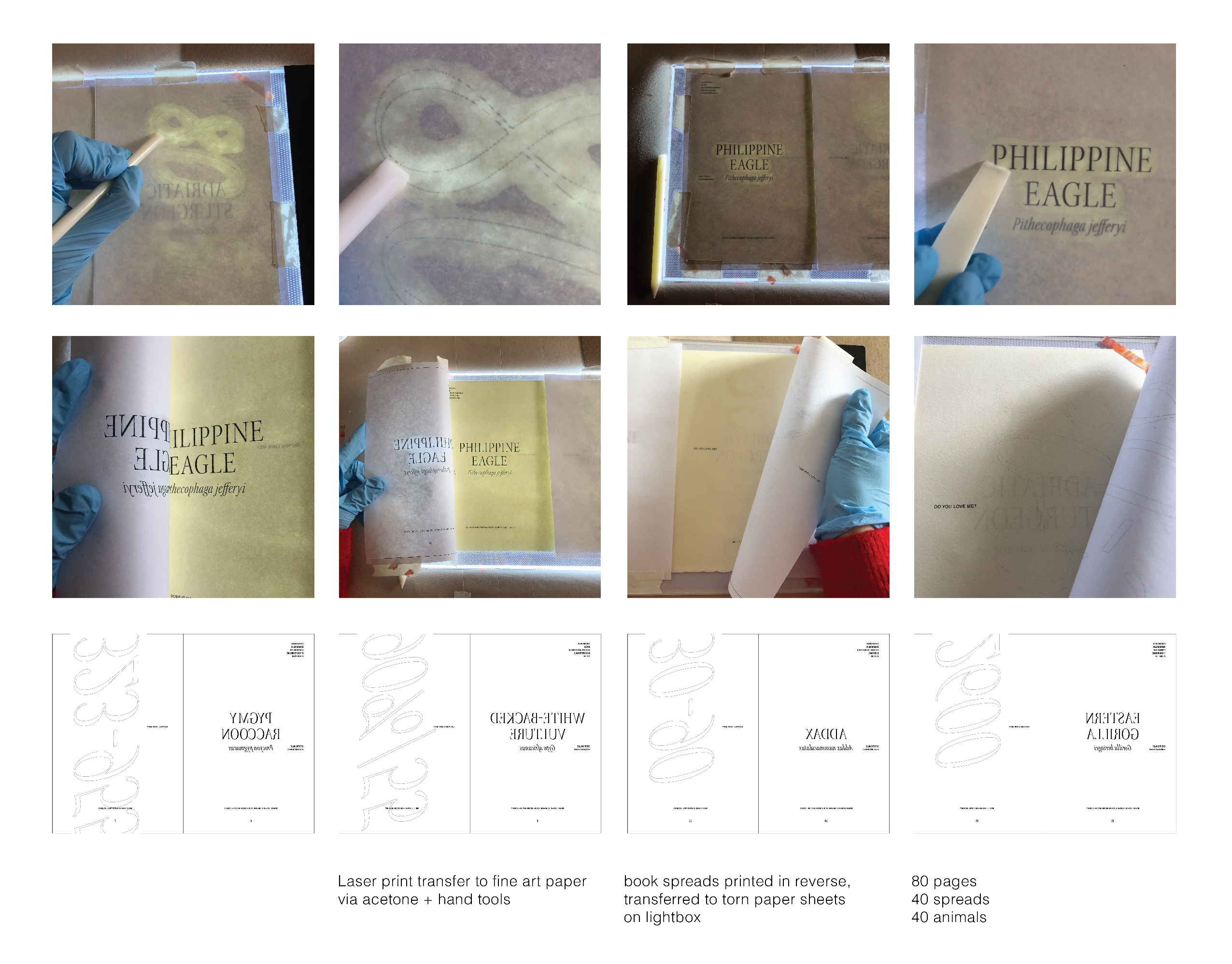Thesis: On Obliteration
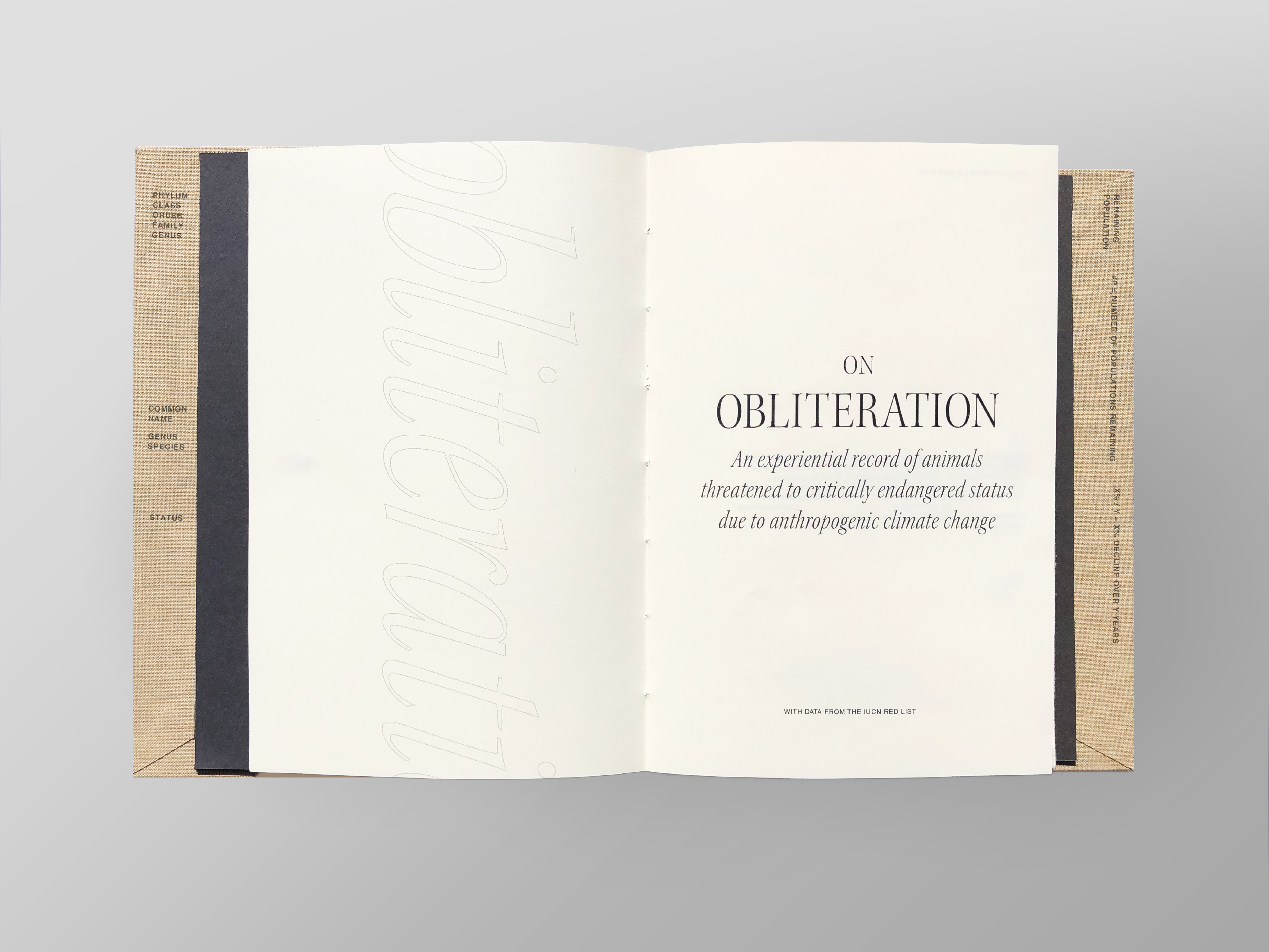
2020
8” x 5.25” (closed), 8” x 10.5” (spreads)
Experiential book of species threatened by anthropogenic climate change, hand-bound and printed using acetone transfer method
This undergraduate thesis was a response to the human-driven climate crisis and animal species directly threatened to extinction as a result. Rhetorical connections are drawn between the devaluation of the natural world and humanity’s self-focused drive towards industrialization and production that undergirds the climate crisis, resulting in a bound object that the user must tear apart to proceed through the work.
Thematically the book references Darwin’s On the Origin of Species,” incorporating 19th century typesetting qualities into the design and directly calling back to its title.
Thematically the book references Darwin’s On the Origin of Species,” incorporating 19th century typesetting qualities into the design and directly calling back to its title.
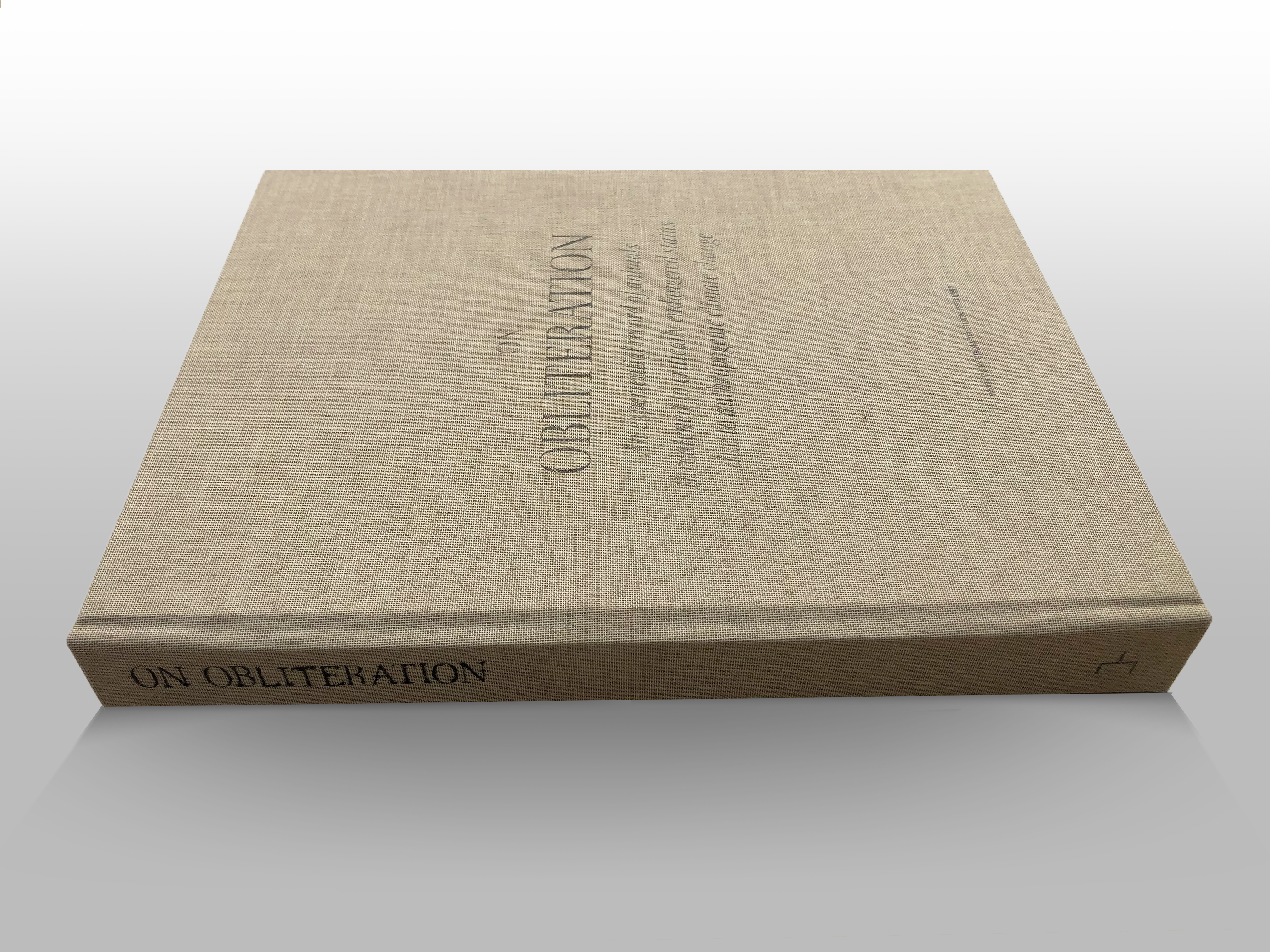
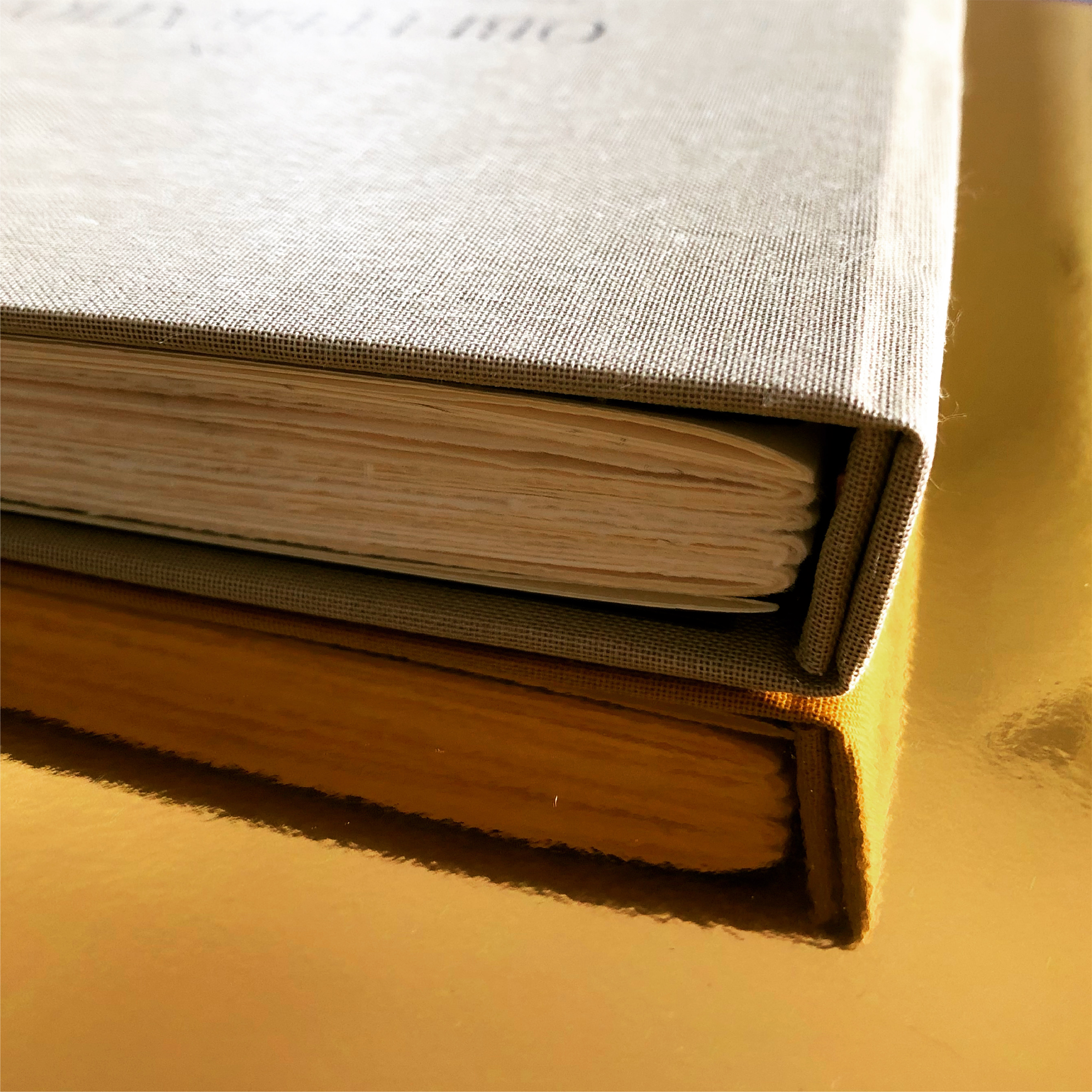
Full book, closed
“Imagine a bound object that the viewer can handle physically and have a unique one-on-one experience with: the viewer or audience must destroy a part or parts of the work in order to investigate it further.
“My intention is to create an emotional response and physical metaphor for the climate crisis: the human urge to interact and investigate can manifest in permanently destructive ways.”
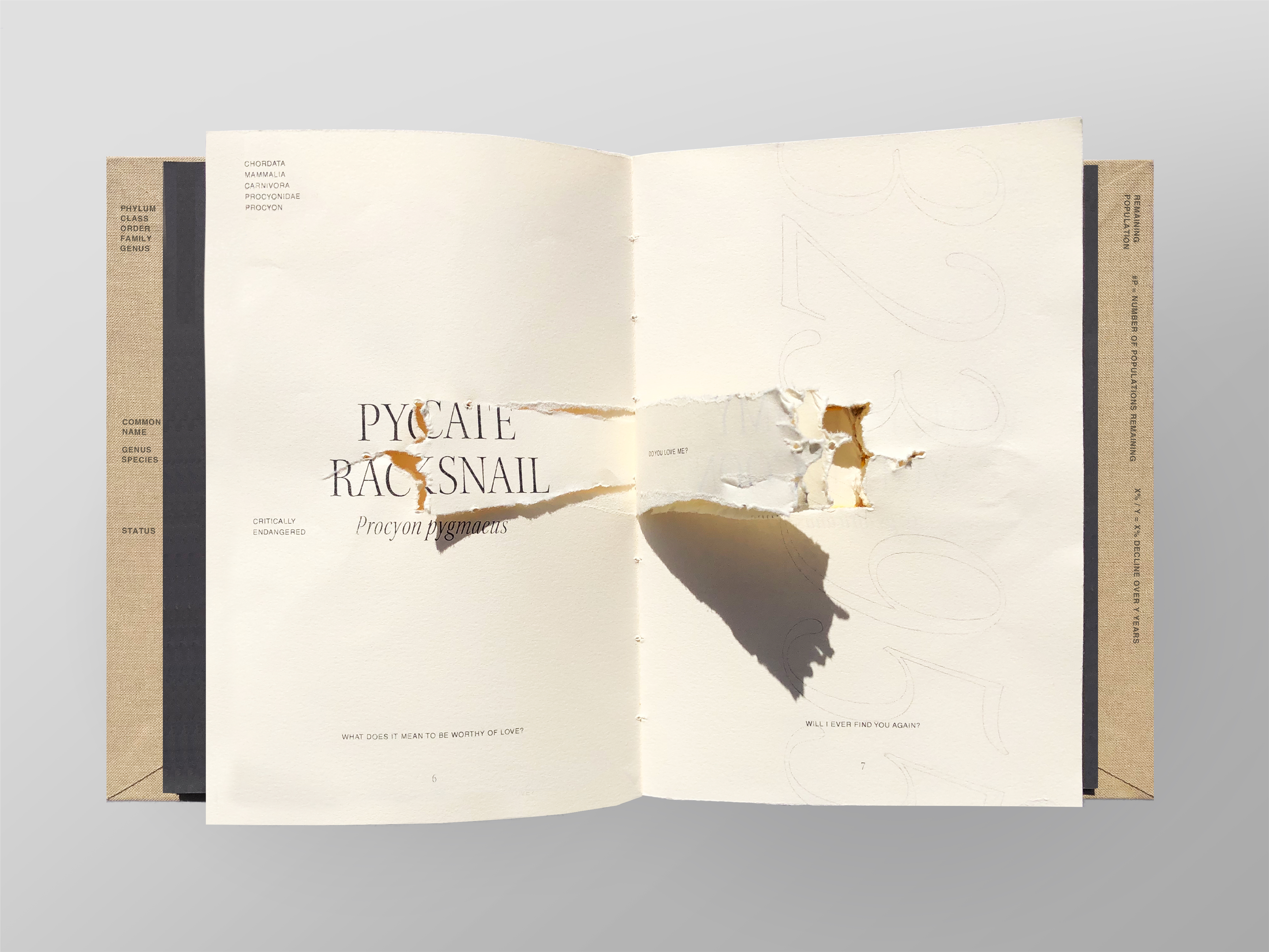
Full book, opened to torn pages
After binding the book, the signatures were sewn in the center, thus necessiating the viewer to tear through a page to proceed to the next animal.
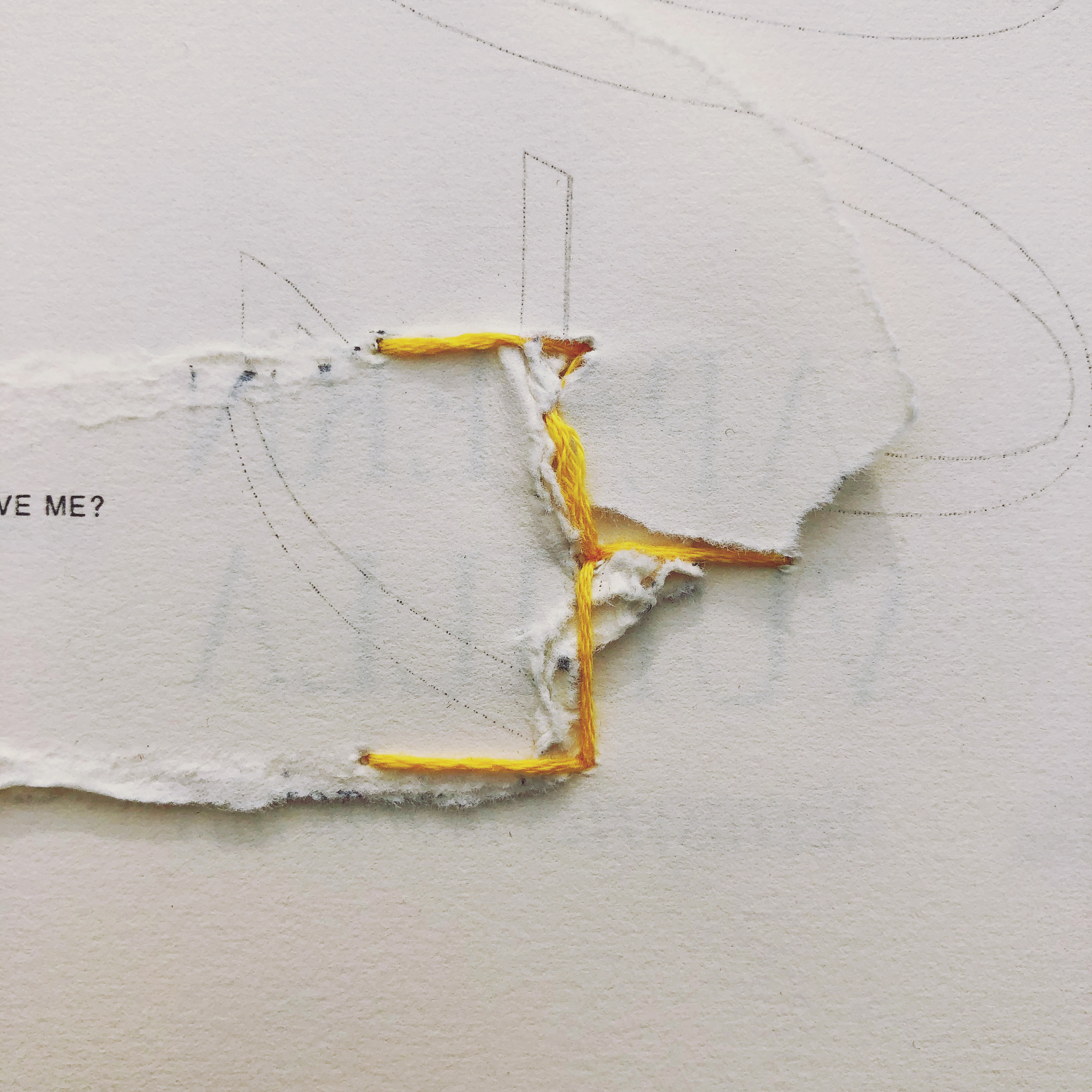
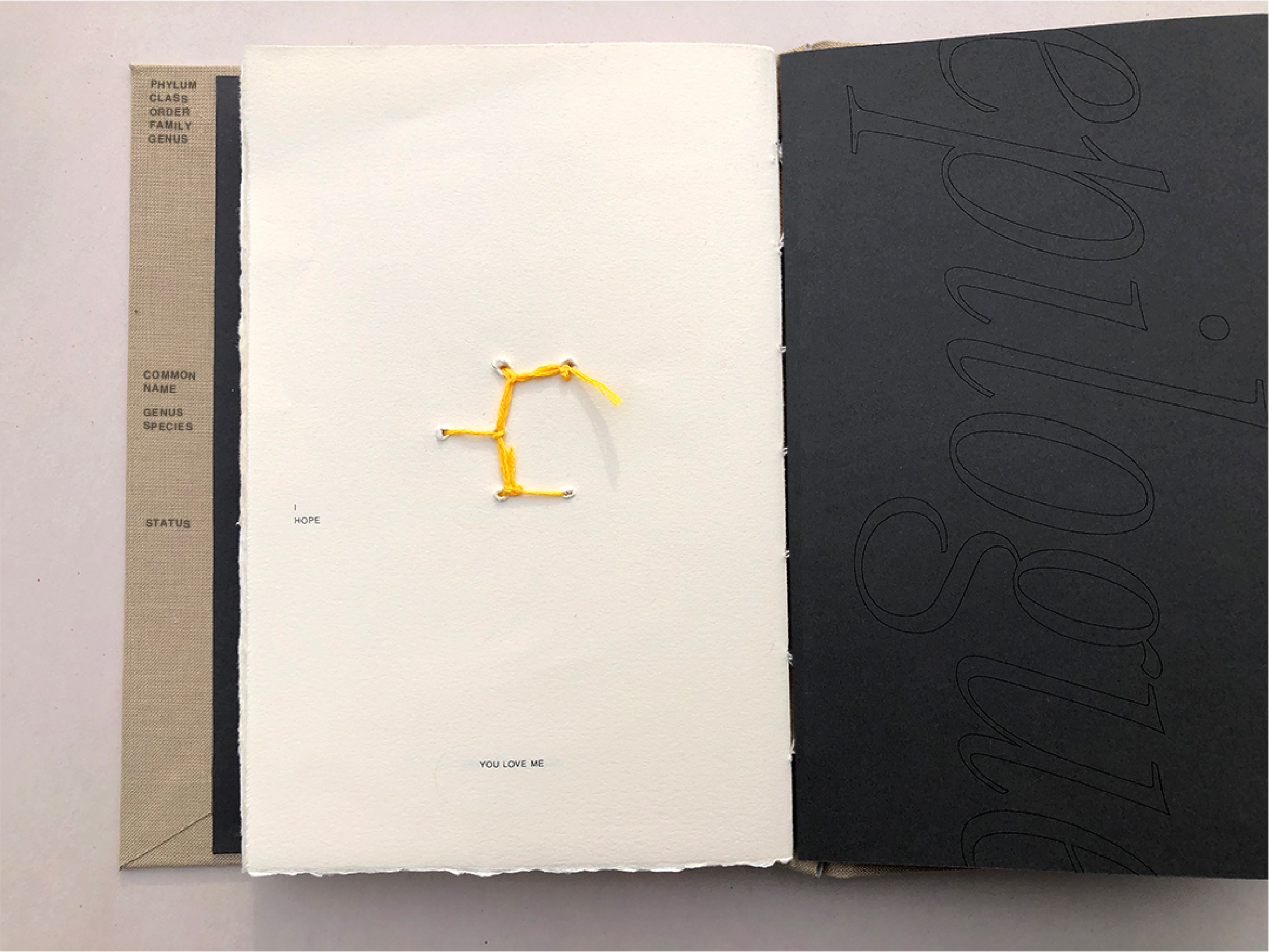
Sewn area detail, closeup (left) and from reverse side of book (right)
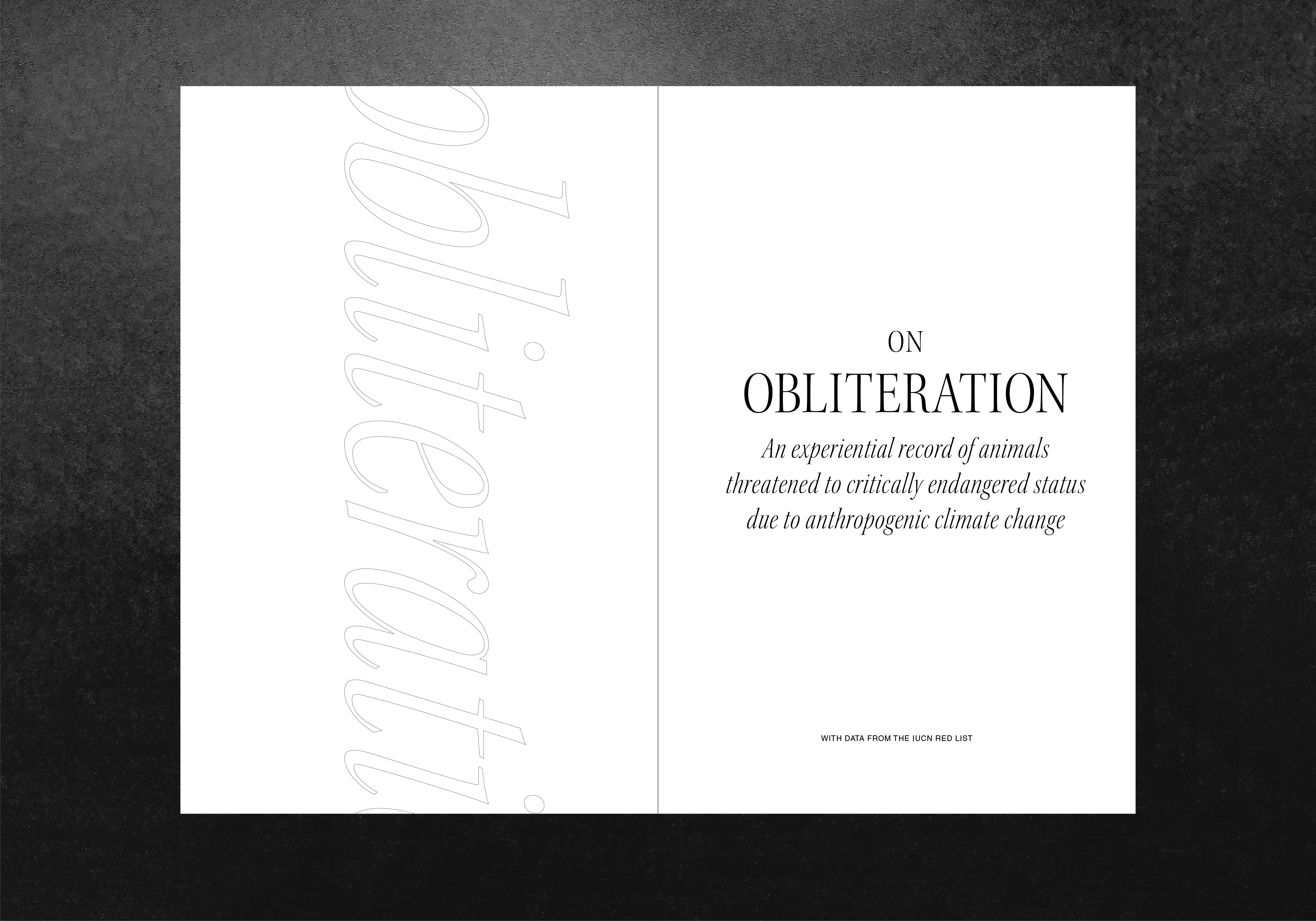
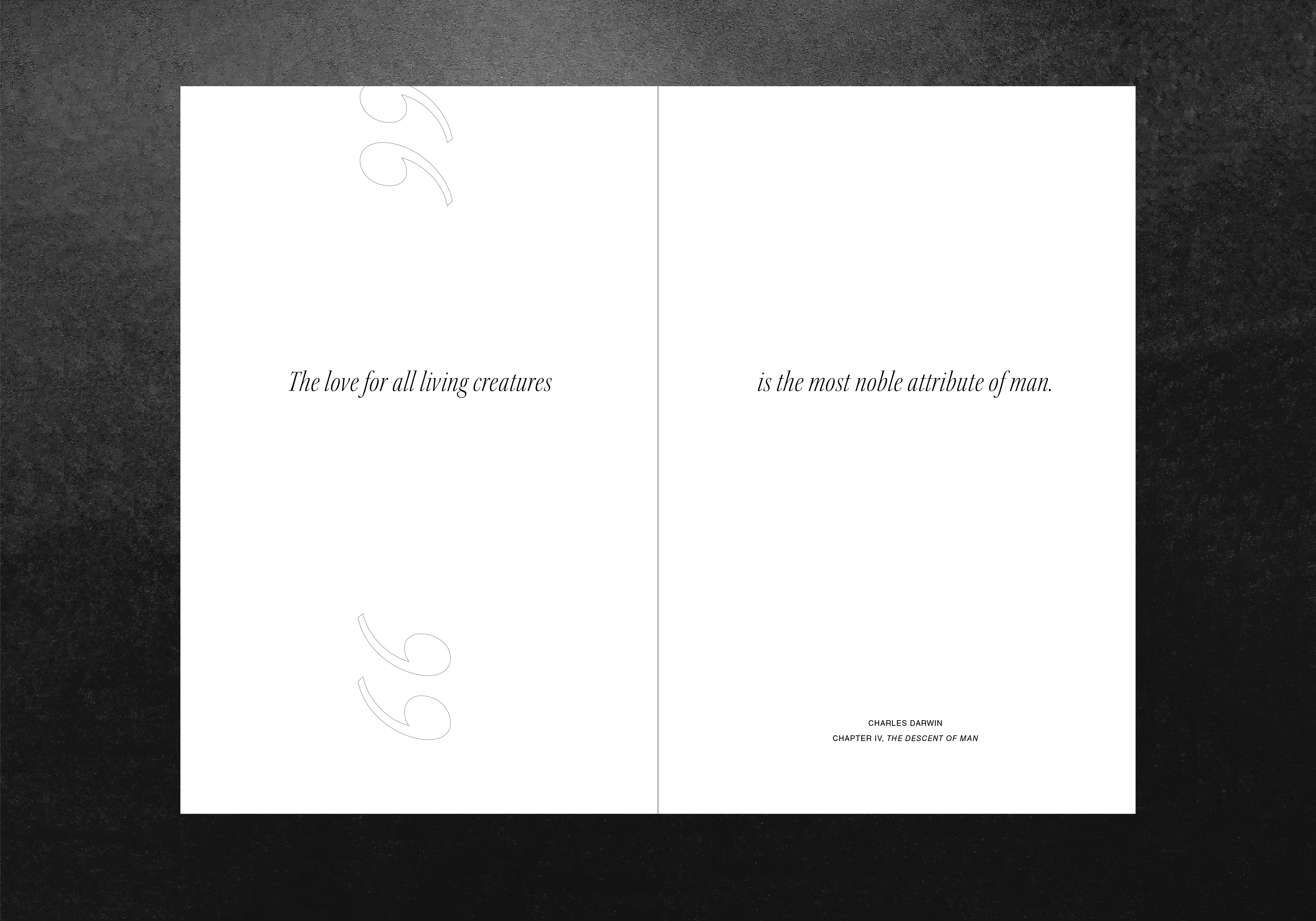
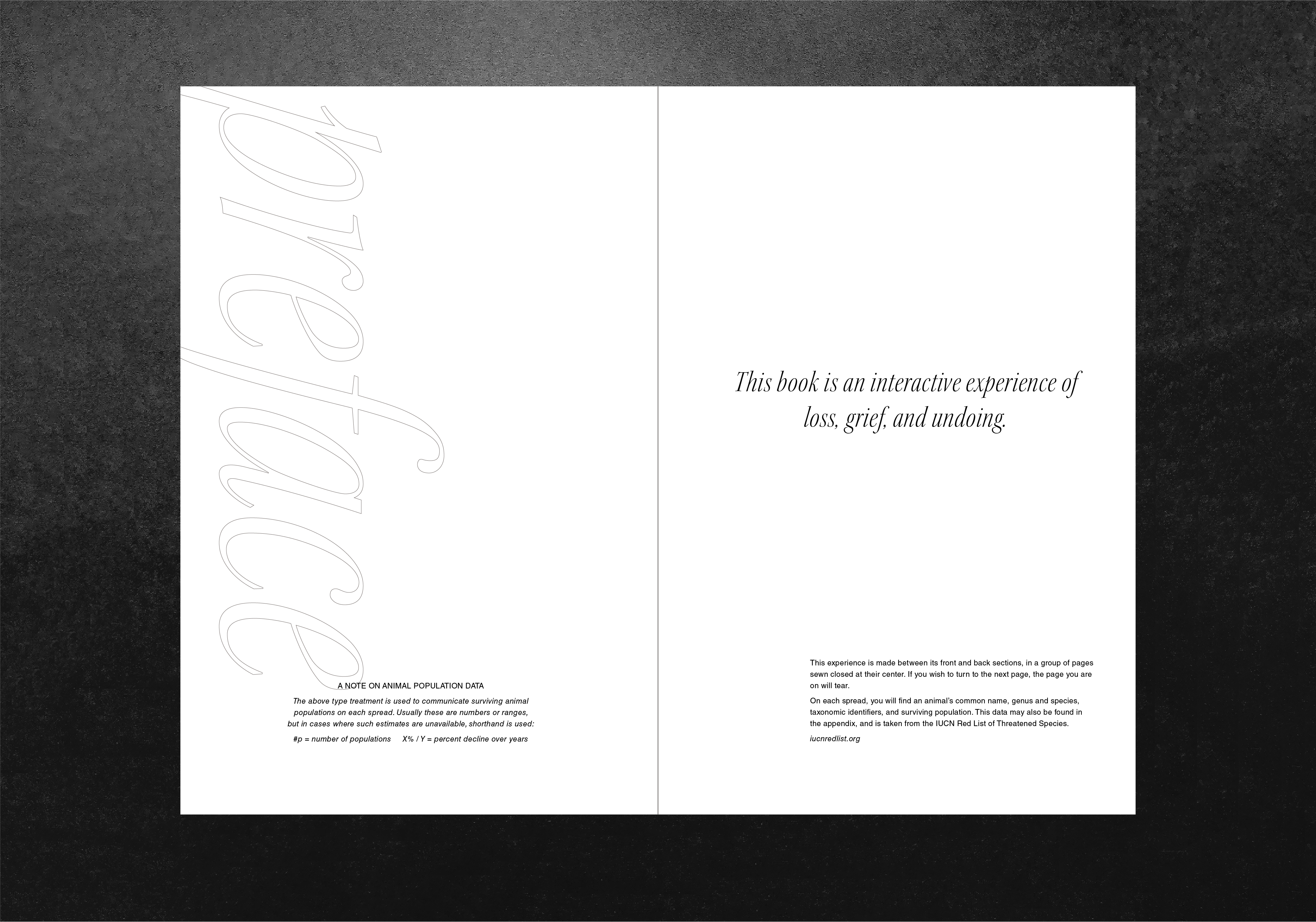
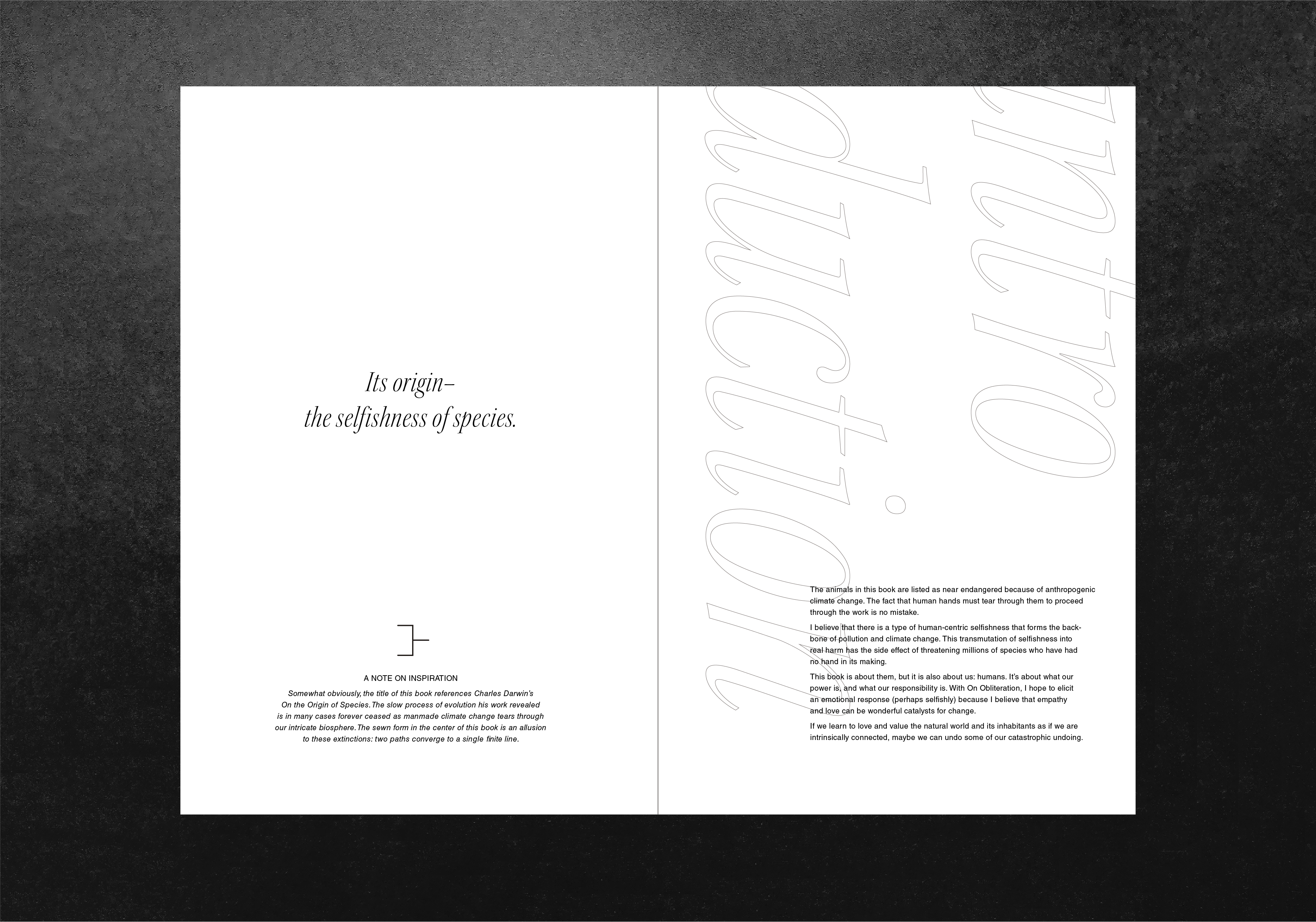
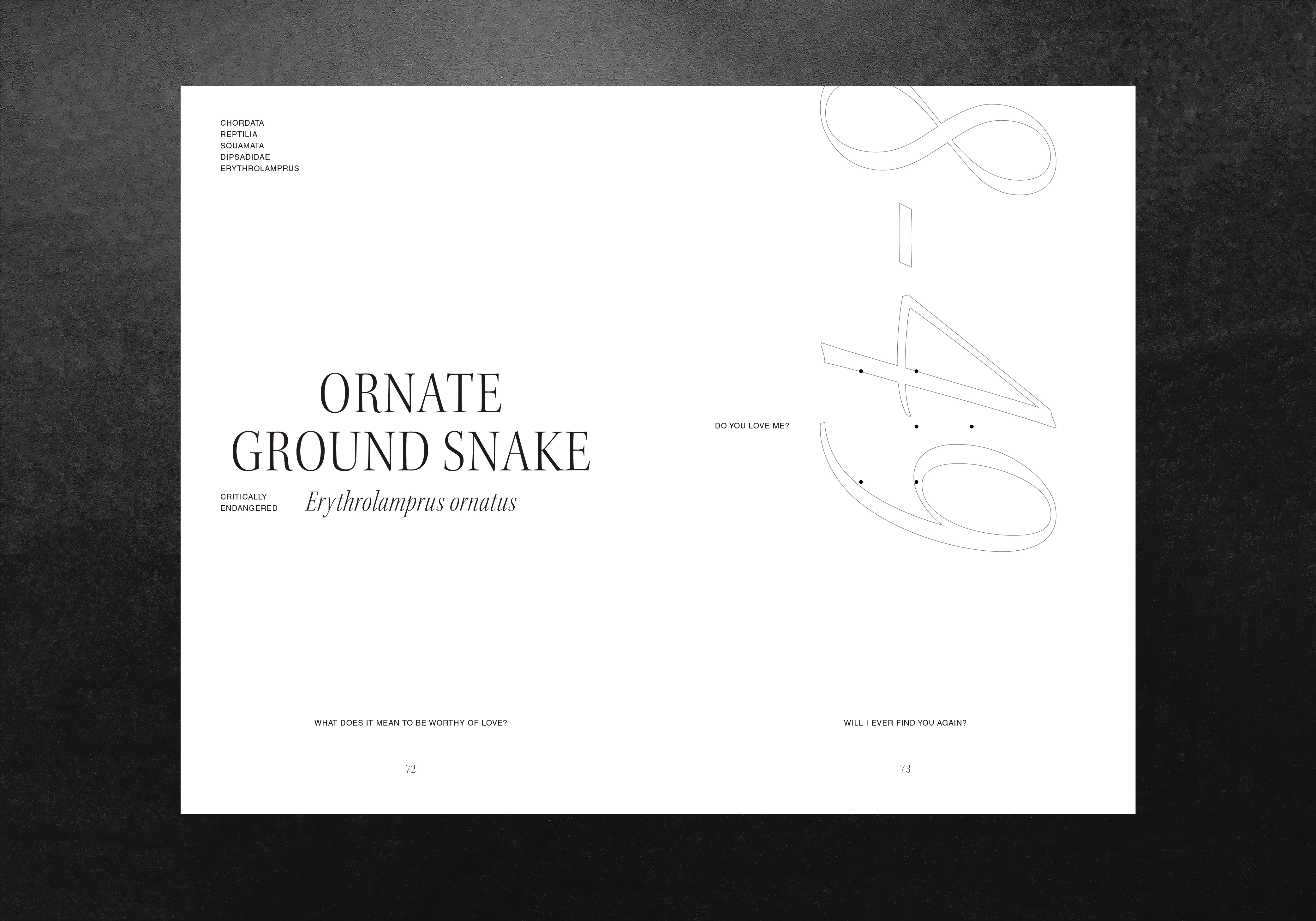
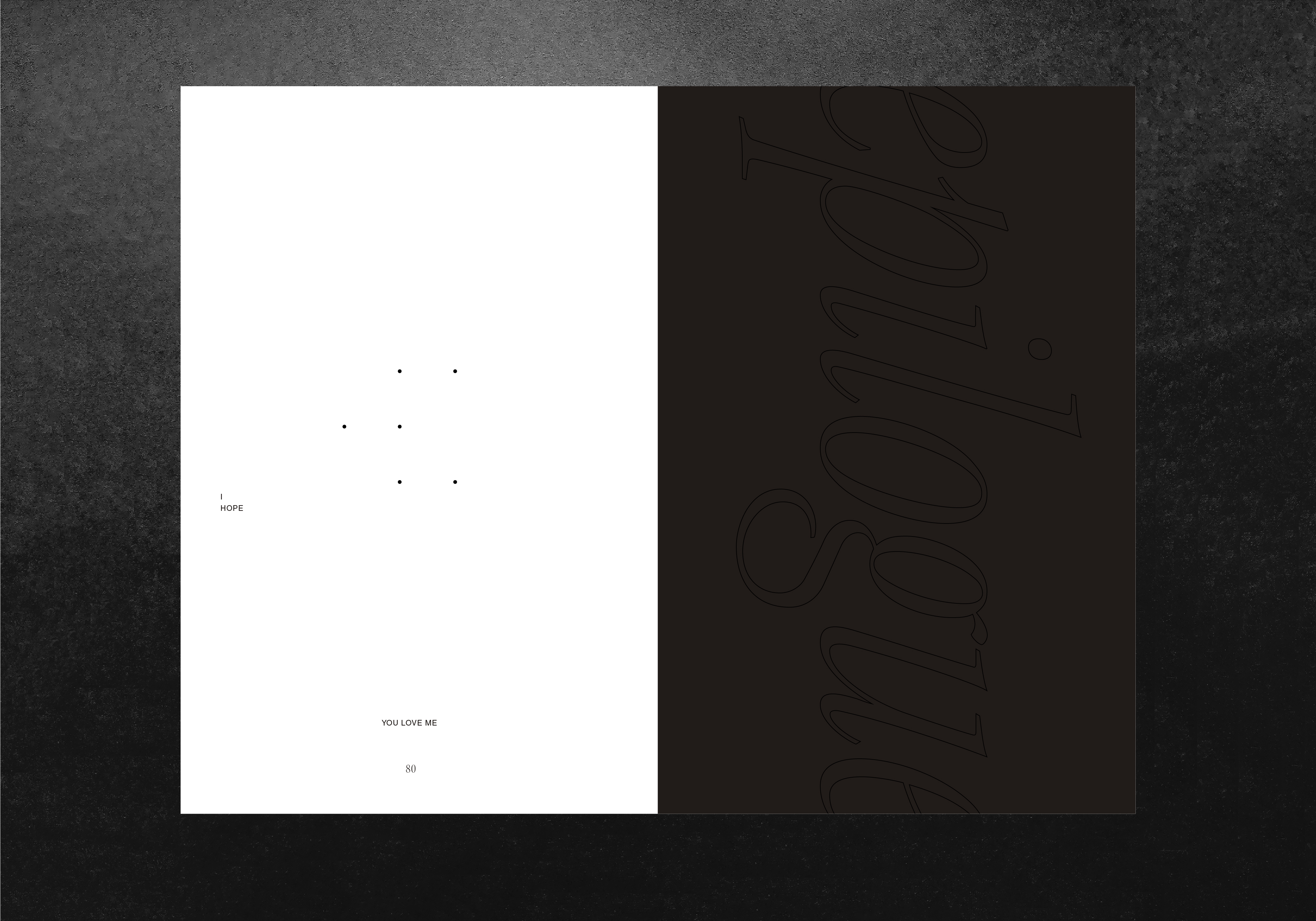


Selected spreads from book showing introductory pages, main content, and epilogue with appendix
Process and execution
On Obliteration was bound and printed almost completely by hand. Layout of pages was done digitally using Adobe InDesign, after which the final pages were laser-printed in reverse and acetone transferred to Rives BFK printing paper. The signatures were cut and folded, then hardcover bound in a casing of linen bookcloth on chipboard. The process of completing the work lasted about 1 month.
On Obliteration was bound and printed almost completely by hand. Layout of pages was done digitally using Adobe InDesign, after which the final pages were laser-printed in reverse and acetone transferred to Rives BFK printing paper. The signatures were cut and folded, then hardcover bound in a casing of linen bookcloth on chipboard. The process of completing the work lasted about 1 month.
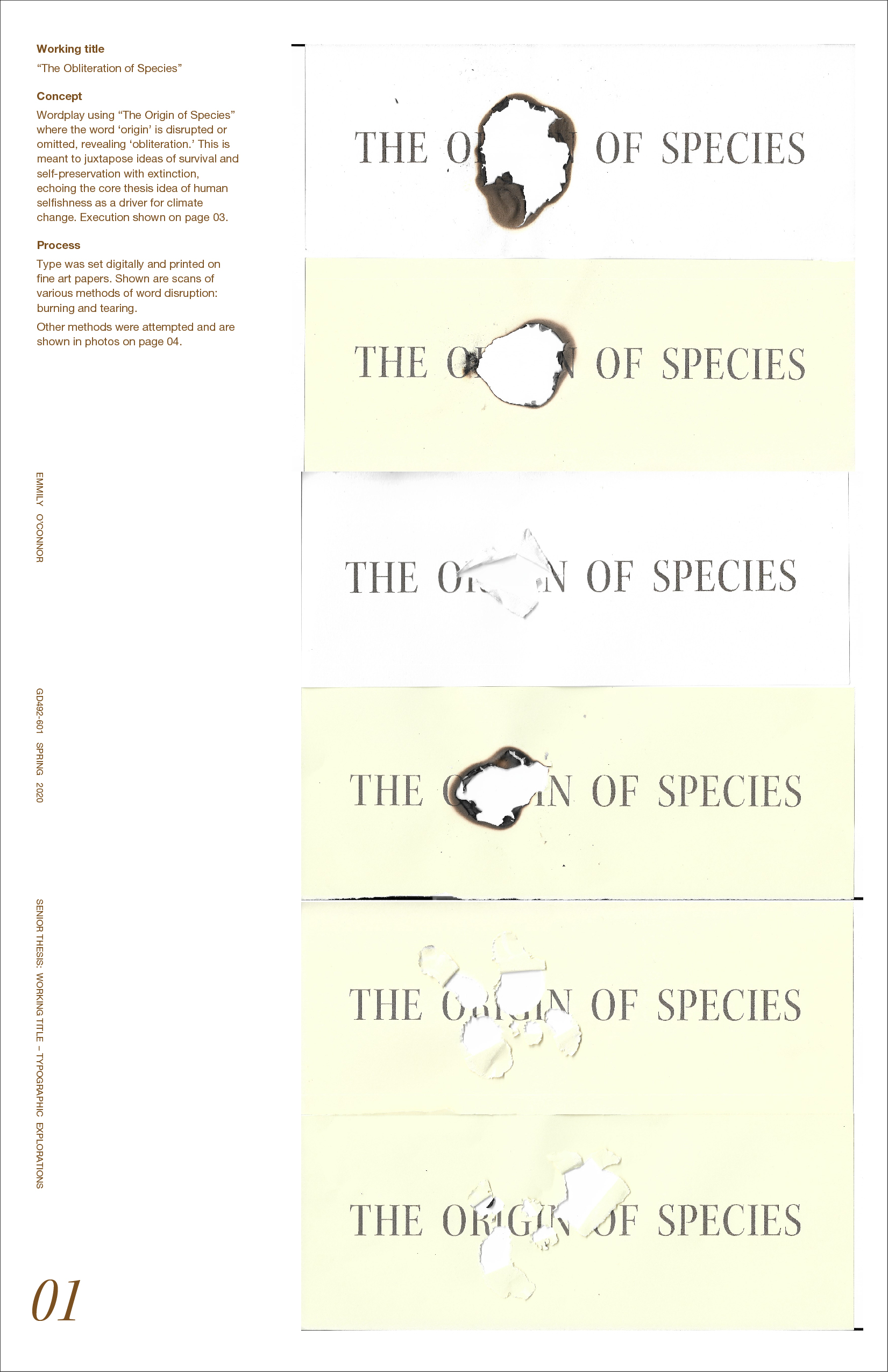

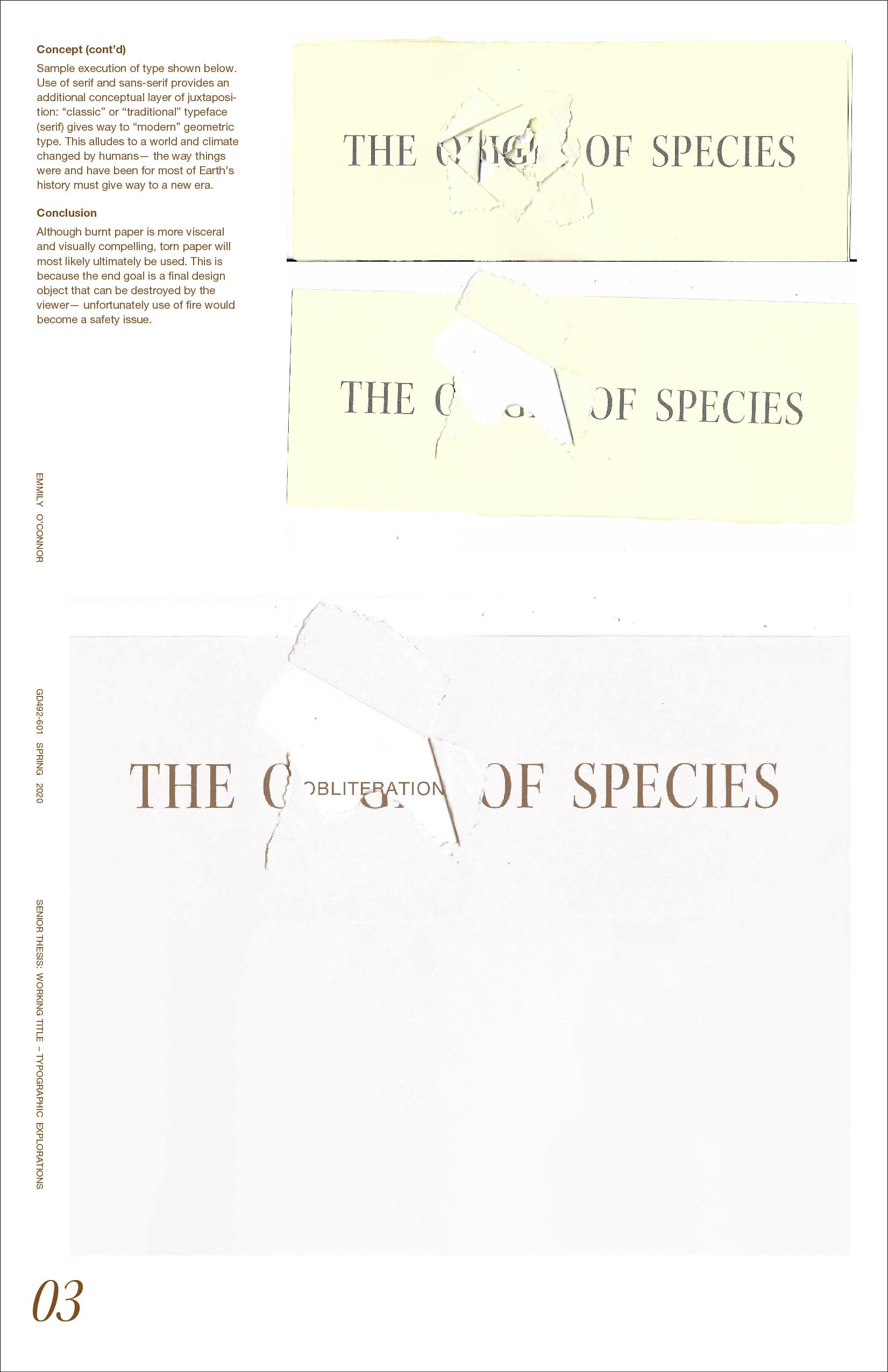
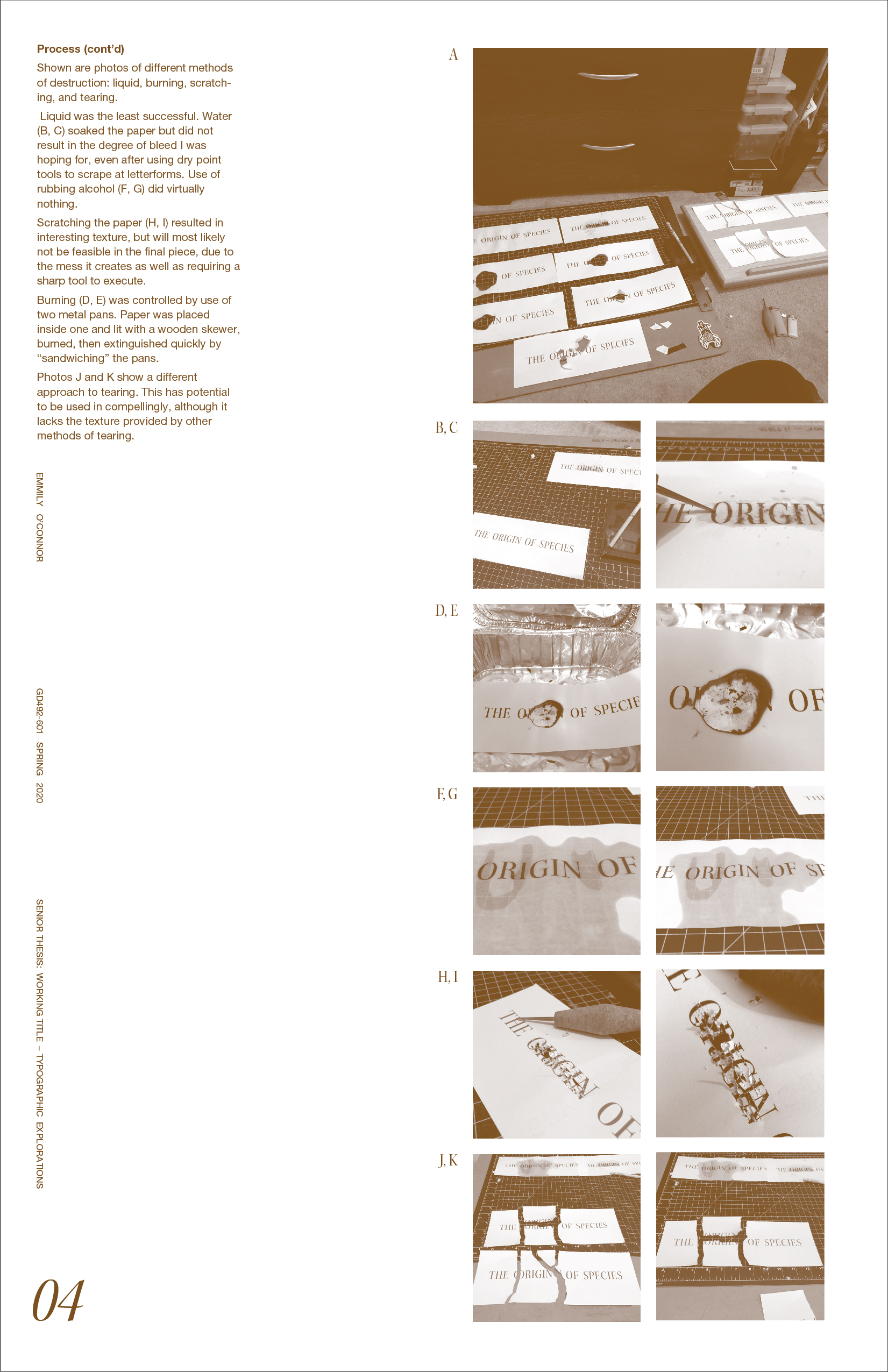
Process: early title explorations with a stronger reference to Darwin’s work
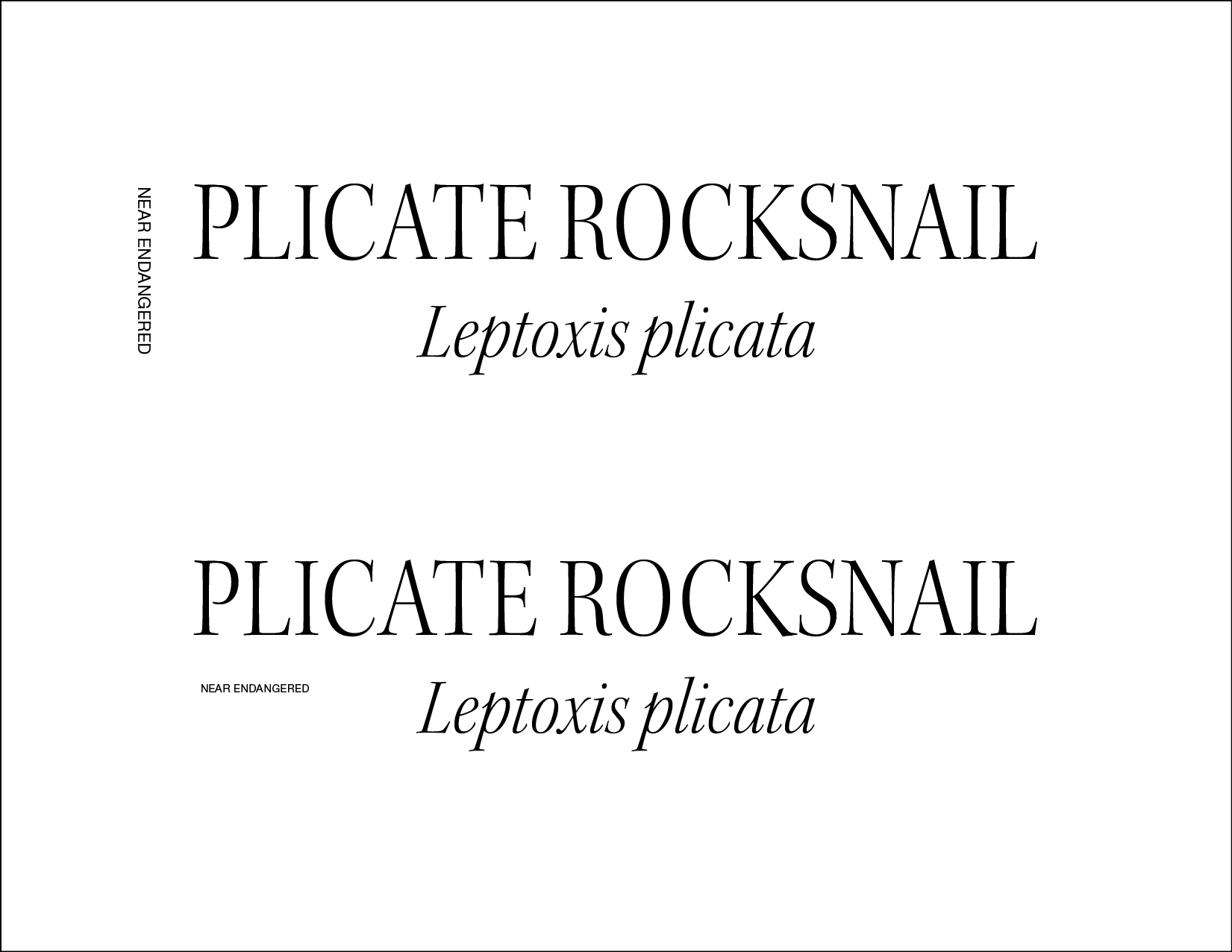
Initial typesetting explorations for animal names
